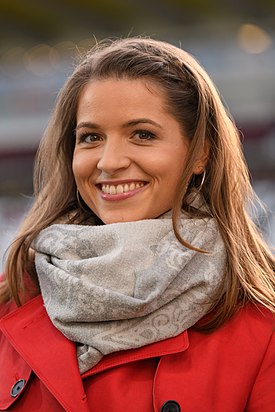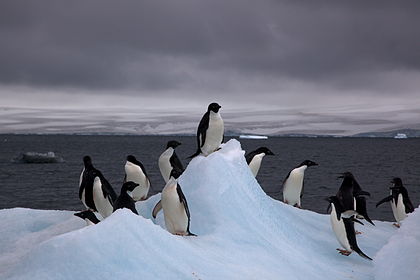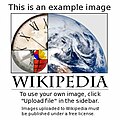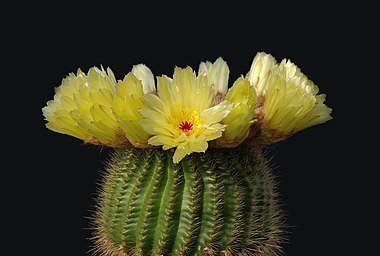Template:Portal pictures/testcases
limits in MediaWiki; see the HTML comment "NewPP limit report" in the rendered page. to examine the results of template uses. You can also use Special:ExpandTemplates You can test how this page looks in the different skins and parsers with these links: |
Different kinds of POTD
POTDs
{{Portal pictures|2018-10-02|2019-10-01}}
{{Portal pictures}}
Grafton Gallery in England in 1893. The people and the absinthe represented in the painting were considered by English critics to be shockingly degraded and uncouth. It hangs in the permanent collection of the Musée d'Orsay
in Paris.Photograph credit: Julia Engel
Kristina Inhof (born 1 October 1988) is an Austrian presenter and sports journalist at ORF, the Austrian national public service broadcaster. She was born in Vienna and grew up in Lower Austria, playing handball for Hypo Niederösterreich during her school years. Inhof graduated with a bachelor's degree in sports science with a focus on sports management at the University of Vienna in 2012. Her presenting career began in 2009, working first for Vienna Online and then for cable television station W24. She was hired by Austrian television broadcaster Puls 4 for the broadcast of the UEFA Champions League in 2012. For several months in 2015, Inhof joined the presenting team of Sky Sport News HD. She has been working exclusively for ORF since 2016, presenting for the football department.
Grafton Gallery in England in 1893. The people and the absinthe represented in the painting were considered by English critics to be shockingly degraded and uncouth. It hangs in the permanent collection of the Musée d'Orsay
in Paris.Photograph credit: Julia Engel
Kristina Inhof (born 1 October 1988) is an Austrian presenter and sports journalist at ORF, the Austrian national public service broadcaster. She was born in Vienna and grew up in Lower Austria, playing handball for Hypo Niederösterreich during her school years. Inhof graduated with a bachelor's degree in sports science with a focus on sports management at the University of Vienna in 2012. Her presenting career began in 2009, working first for Vienna Online and then for cable television station W24. She was hired by Austrian television broadcaster Puls 4 for the broadcast of the UEFA Champions League in 2012. For several months in 2015, Inhof joined the presenting team of Sky Sport News HD. She has been working exclusively for ORF since 2016, presenting for the football department.
POTD with multiline caption
{{Portal pictures|2019-05-30|2019-05-29|2019-05-27}}
{{Portal pictures}}
Modena in 2014. Martinelli left for Brescia in 2015 and joined the club on a permanent basis in 2017. From 2008 to 2013, he also played for various Swiss national youth football teams
.
This picture, taken in 2015, shows Martinelli playing for Modena in a match against Ternana..
This picture is a depiction of the historical
Liberty on the left and a Continental soldier on the right, while Fame goes from Liberty to the soldier above. Part of this design also appears in the seal of South Carolina
.Photograph credit: Unknown; restored by Adam Cuerden
George Washington Carver (1860s–1943) was an American agricultural scientist and inventor. Born into slavery in Diamond, Missouri, he was raised by his master Moses Carver after being emancipated, having been separated from his parents as an infant during a kidnapping incident. After college, Carver became a professor at Tuskegee Institute, where he developed techniques to improve soils depleted by repeated plantings of cotton. He wanted poor farmers to grow alternative crops, such as peanuts and sweet potatoes, as a source of their own food and to improve their quality of life. Carver spent years developing and promoting products made from peanuts, although none became commercially successful. Apart from his work to improve the lives of farmers, he was also a leader in promoting environmentalism. Carver received numerous honors for his work, including the NAACP's Spingarn Medal. In an era of very high racial polarization, his fame reached beyond the black community; he was widely recognized and praised in the white community for his many achievements and talents. In 1941, Time magazine dubbed Carver a "black Leonardo".
This picture of Carver was taken around 1910 and is in the collection of the Tuskegee University archives.
Modena in 2014. Martinelli left for Brescia in 2015 and joined the club on a permanent basis in 2017. From 2008 to 2013, he also played for various Swiss national youth football teams
.
This picture, taken in 2015, shows Martinelli playing for Modena in a match against Ternana..
This picture is a depiction of the historical
Liberty on the left and a Continental soldier on the right, while Fame goes from Liberty to the soldier above. Part of this design also appears in the seal of South Carolina
.Photograph credit: Unknown; restored by Adam Cuerden
George Washington Carver (1860s–1943) was an American agricultural scientist and inventor. Born into slavery in Diamond, Missouri, he was raised by his master Moses Carver after being emancipated, having been separated from his parents as an infant during a kidnapping incident. After college, Carver became a professor at Tuskegee Institute, where he developed techniques to improve soils depleted by repeated plantings of cotton. He wanted poor farmers to grow alternative crops, such as peanuts and sweet potatoes, as a source of their own food and to improve their quality of life. Carver spent years developing and promoting products made from peanuts, although none became commercially successful. Apart from his work to improve the lives of farmers, he was also a leader in promoting environmentalism. Carver received numerous honors for his work, including the NAACP's Spingarn Medal. In an era of very high racial polarization, his fame reached beyond the black community; he was widely recognized and praised in the white community for his many achievements and talents. In 1941, Time magazine dubbed Carver a "black Leonardo".
This picture of Carver was taken around 1910 and is in the collection of the Tuskegee University archives.
Other parameters
POTDs and custom images
{{Portal pictures|2018-11-01|2019-11-01 |caption1=<p></p>Lorem ipsum dolor sit amet, consectetur adipiscing elit, sed do eiusmod tempor incididunt ut labore et dolore magna aliqua. Ut enim ad minim veniam, quis nostrud exercitation ullamco laboris nisi ut aliquip ex ea commodo consequat. Duis aute irure dolor in reprehenderit in voluptate velit esse cillum dolore eu fugiat nulla pariatur. Excepteur sint occaecat cupidatat non proident, sunt in culpa qui officia deserunt mollit anim id est laborum.</p> |caption2=<p></p>Lorem ipsum dolor sit amet, consectetur adipiscing elit, sed do eiusmod tempor incididunt ut labore et dolore magna aliqua. Ut enim ad minim veniam, quis nostrud exercitation ullamco laboris nisi ut aliquip ex ea commodo consequat. Duis aute irure dolor in reprehenderit in voluptate velit esse cillum dolore eu fugiat nulla pariatur. Excepteur sint occaecat cupidatat non proident, sunt in culpa qui officia deserunt mollit anim id est laborum.</p> |credit1=Original by [[User:Gutza|Gutza]], modifications by [[User:Centrx|Centrx]] |credit2=Credit: [[User:W.|Wolfgang]] |i1=Example.jpg |i2=Example.png |title1=Example 1 |title2=Example 2}}
{{Portal pictures}}
Photograph: Jason Auch
The Adélie penguin (Pygoscelis adeliae) is a species of penguin common along the entire Antarctic coast, which is their only residence. They are named after the French Antarctic territory of Adélie Land, which is in turn named for Adèle Dumont d'Urville. She was the wife of French explorer Jules Dumont d'Urville, who discovered these penguins in 1840. Adélie penguins are the most widely spread of the penguin species, and obtain their food by both predation and foraging. Their diet is mainly krill and fish.
Diagram credit: Mariana Ruiz Villarreal
The human skull is the bony structure that forms the head in the human skeleton. It supports the structures of the face and forms a cavity for the brain. Like the skulls of other vertebrates, it protects the brain from injury. The skull consists of three parts, of different embryological origin – the neurocranium, the sutures, and the facial skeleton (also called the membranous viscerocranium). The neurocranium (or braincase) forms the protective bony structure that surrounds and houses the brain and brainstem. The sutures are fairly rigid joints between bones of the neurocranium. The upper areas of the cranial bones form the calvaria (skullcap), whereas the facial skeleton is formed by the bones supporting the face, including the mandible. This picture is a diagram of the human skull as seen from the left, showing the main bones of the neurocranium and the facial skeleton.
Example 2
Credit: Wolfgang
Lorem ipsum dolor sit amet, consectetur adipiscing elit, sed do eiusmod tempor incididunt ut labore et dolore magna aliqua. Ut enim ad minim veniam, quis nostrud exercitation ullamco laboris nisi ut aliquip ex ea commodo consequat. Duis aute irure dolor in reprehenderit in voluptate velit esse cillum dolore eu fugiat nulla pariatur. Excepteur sint occaecat cupidatat non proident, sunt in culpa qui officia deserunt mollit anim id est laborum.
Lorem ipsum dolor sit amet, consectetur adipiscing elit, sed do eiusmod tempor incididunt ut labore et dolore magna aliqua. Ut enim ad minim veniam, quis nostrud exercitation ullamco laboris nisi ut aliquip ex ea commodo consequat. Duis aute irure dolor in reprehenderit in voluptate velit esse cillum dolore eu fugiat nulla pariatur. Excepteur sint occaecat cupidatat non proident, sunt in culpa qui officia deserunt mollit anim id est laborum.
Photograph: Jason Auch
The Adélie penguin (Pygoscelis adeliae) is a species of penguin common along the entire Antarctic coast, which is their only residence. They are named after the French Antarctic territory of Adélie Land, which is in turn named for Adèle Dumont d'Urville. She was the wife of French explorer Jules Dumont d'Urville, who discovered these penguins in 1840. Adélie penguins are the most widely spread of the penguin species, and obtain their food by both predation and foraging. Their diet is mainly krill and fish.
Diagram credit: Mariana Ruiz Villarreal
The human skull is the bony structure that forms the head in the human skeleton. It supports the structures of the face and forms a cavity for the brain. Like the skulls of other vertebrates, it protects the brain from injury. The skull consists of three parts, of different embryological origin – the neurocranium, the sutures, and the facial skeleton (also called the membranous viscerocranium). The neurocranium (or braincase) forms the protective bony structure that surrounds and houses the brain and brainstem. The sutures are fairly rigid joints between bones of the neurocranium. The upper areas of the cranial bones form the calvaria (skullcap), whereas the facial skeleton is formed by the bones supporting the face, including the mandible. This picture is a diagram of the human skull as seen from the left, showing the main bones of the neurocranium and the facial skeleton.
Example 2
Credit: Wolfgang
Lorem ipsum dolor sit amet, consectetur adipiscing elit, sed do eiusmod tempor incididunt ut labore et dolore magna aliqua. Ut enim ad minim veniam, quis nostrud exercitation ullamco laboris nisi ut aliquip ex ea commodo consequat. Duis aute irure dolor in reprehenderit in voluptate velit esse cillum dolore eu fugiat nulla pariatur. Excepteur sint occaecat cupidatat non proident, sunt in culpa qui officia deserunt mollit anim id est laborum.
Lorem ipsum dolor sit amet, consectetur adipiscing elit, sed do eiusmod tempor incididunt ut labore et dolore magna aliqua. Ut enim ad minim veniam, quis nostrud exercitation ullamco laboris nisi ut aliquip ex ea commodo consequat. Duis aute irure dolor in reprehenderit in voluptate velit esse cillum dolore eu fugiat nulla pariatur. Excepteur sint occaecat cupidatat non proident, sunt in culpa qui officia deserunt mollit anim id est laborum.
Four custom images – check order
{{Portal pictures |caption1=Should be first |caption2=Should be second |caption3=Should be third |caption4=Should be fourth |i1=Salmonlarvakils.jpg |i2=Pterois volitans Manado-e.jpg |i3=DiskuslaichaS.jpg |i4=Hungry koi.jpg}}
{{Portal pictures}}
{{{title}}}
Should be fourth
{{{title}}}
Should be first
{{{title}}}
Should be third
File:Pterois volitans Manado-e.jpg
{{{title}}}
Should be second
{{{title}}}
Should be fourth
{{{title}}}
Should be first
{{{title}}}
Should be third
File:Pterois volitans Manado-e.jpg
{{{title}}}
Should be second
|more=no{{Portal pictures|2018-12-02 |more=no}}
{{Portal pictures}}
Mario Kart 8 Deluxe, and Super Mario Odyssey
.Mario Kart 8 Deluxe, and Super Mario Odyssey
.{{Portal pictures|2018-12-02 |function=slideShow |more=no}}
{{Portal pictures}}
-
Mario Kart 8 Deluxe, and Super Mario Odyssey.
-
Mario Kart 8 Deluxe, and Super Mario Odyssey.
Slide show tests
Slideshow test{{Portal pictures|2018-11-01|2019-11-01 |caption1=<p></p>Lorem ipsum dolor sit amet, consectetur adipiscing elit, sed do eiusmod tempor incididunt ut labore et dolore magna aliqua. Ut enim ad minim veniam, quis nostrud exercitation ullamco laboris nisi ut aliquip ex ea commodo consequat. Duis aute irure dolor in reprehenderit in voluptate velit esse cillum dolore eu fugiat nulla pariatur. Excepteur sint occaecat cupidatat non proident, sunt in culpa qui officia deserunt mollit anim id est laborum.</p> |caption2=<p></p>Lorem ipsum dolor sit amet, consectetur adipiscing elit, sed do eiusmod tempor incididunt ut labore et dolore magna aliqua. Ut enim ad minim veniam, quis nostrud exercitation ullamco laboris nisi ut aliquip ex ea commodo consequat. Duis aute irure dolor in reprehenderit in voluptate velit esse cillum dolore eu fugiat nulla pariatur. Excepteur sint occaecat cupidatat non proident, sunt in culpa qui officia deserunt mollit anim id est laborum.</p> |credit1=Original by [[User:Gutza|Gutza]], modifications by [[User:Centrx|Centrx]] |credit2=Credit: [[User:W.|Wolfgang]] |function=slideShow |i1=Example.jpg |i2=Example.png |title1=Example 1 |title2=Example 2}}{{Portal pictures}}
-
Lorem ipsum dolor sit amet, consectetur adipiscing elit, sed do eiusmod tempor incididunt ut labore et dolore magna aliqua. Ut enim ad minim veniam, quis nostrud exercitation ullamco laboris nisi ut aliquip ex ea commodo consequat. Duis aute irure dolor in reprehenderit in voluptate velit esse cillum dolore eu fugiat nulla pariatur. Excepteur sint occaecat cupidatat non proident, sunt in culpa qui officia deserunt mollit anim id est laborum.
-
Example 2Credit:WolfgangLorem ipsum dolor sit amet, consectetur adipiscing elit, sed do eiusmod tempor incididunt ut labore et dolore magna aliqua. Ut enim ad minim veniam, quis nostrud exercitation ullamco laboris nisi ut aliquip ex ea commodo consequat. Duis aute irure dolor in reprehenderit in voluptate velit esse cillum dolore eu fugiat nulla pariatur. Excepteur sint occaecat cupidatat non proident, sunt in culpa qui officia deserunt mollit anim id est laborum.
-
Diagram credit: Mariana Ruiz VillarrealThe human skull is the bony structure that forms the head in the human skeleton. It supports the structures of the face and forms a cavity for the brain. Like the skulls of other vertebrates, it protects the brain from injury. The skull consists of three parts, of different embryological origin – the neurocranium, the sutures, and the facial skeleton (also called the membranous viscerocranium). The neurocranium (or braincase) forms the protective bony structure that surrounds and houses the brain and brainstem. The sutures are fairly rigid joints between bones of the neurocranium. The upper areas of the cranial bones form the calvaria (skullcap), whereas the facial skeleton is formed by the bones supporting the face, including the mandible. This picture is a diagram of the human skull as seen from the left, showing the main bones of the neurocranium and the facial skeleton.
-
Photograph: Jason AuchThe Adélie penguin (Pygoscelis adeliae) is a species of penguin common along the entire Antarctic coast, which is their only residence. They are named after the French Antarctic territory of Adélie Land, which is in turn named for Adèle Dumont d'Urville. She was the wife of French explorer Jules Dumont d'Urville, who discovered these penguins in 1840. Adélie penguins are the most widely spread of the penguin species, and obtain their food by both predation and foraging. Their diet is mainly krill and fish.
-
Lorem ipsum dolor sit amet, consectetur adipiscing elit, sed do eiusmod tempor incididunt ut labore et dolore magna aliqua. Ut enim ad minim veniam, quis nostrud exercitation ullamco laboris nisi ut aliquip ex ea commodo consequat. Duis aute irure dolor in reprehenderit in voluptate velit esse cillum dolore eu fugiat nulla pariatur. Excepteur sint occaecat cupidatat non proident, sunt in culpa qui officia deserunt mollit anim id est laborum.
-
Photograph: Jason AuchThe Adélie penguin (Pygoscelis adeliae) is a species of penguin common along the entire Antarctic coast, which is their only residence. They are named after the French Antarctic territory of Adélie Land, which is in turn named for Adèle Dumont d'Urville. She was the wife of French explorer Jules Dumont d'Urville, who discovered these penguins in 1840. Adélie penguins are the most widely spread of the penguin species, and obtain their food by both predation and foraging. Their diet is mainly krill and fish.
-
Diagram credit: Mariana Ruiz VillarrealThe human skull is the bony structure that forms the head in the human skeleton. It supports the structures of the face and forms a cavity for the brain. Like the skulls of other vertebrates, it protects the brain from injury. The skull consists of three parts, of different embryological origin – the neurocranium, the sutures, and the facial skeleton (also called the membranous viscerocranium). The neurocranium (or braincase) forms the protective bony structure that surrounds and houses the brain and brainstem. The sutures are fairly rigid joints between bones of the neurocranium. The upper areas of the cranial bones form the calvaria (skullcap), whereas the facial skeleton is formed by the bones supporting the face, including the mandible. This picture is a diagram of the human skull as seen from the left, showing the main bones of the neurocranium and the facial skeleton.
-
Example 2Credit:WolfgangLorem ipsum dolor sit amet, consectetur adipiscing elit, sed do eiusmod tempor incididunt ut labore et dolore magna aliqua. Ut enim ad minim veniam, quis nostrud exercitation ullamco laboris nisi ut aliquip ex ea commodo consequat. Duis aute irure dolor in reprehenderit in voluptate velit esse cillum dolore eu fugiat nulla pariatur. Excepteur sint occaecat cupidatat non proident, sunt in culpa qui officia deserunt mollit anim id est laborum.
POTD with multiline caption — slideShow{{Portal pictures|2019-05-30|2019-05-29|2019-05-27 |function=slideShow}}{{Portal pictures}}
-
Liberty on the left and a Continental soldier on the right, while Fame goes from Liberty to the soldier above. Part of this design also appears in the seal of South Carolina.Photograph credit: Unknown; restored by Adam CuerdenGeorge Washington Carver (1860s–1943) was an American agricultural scientist and inventor. Born into slavery in Diamond, Missouri, he was raised by his master Moses Carver after being emancipated, having been separated from his parents as an infant during a kidnapping incident. After college, Carver became a professor at Tuskegee Institute, where he developed techniques to improve soils depleted by repeated plantings of cotton. He wanted poor farmers to grow alternative crops, such as peanuts and sweet potatoes, as a source of their own food and to improve their quality of life. Carver spent years developing and promoting products made from peanuts, although none became commercially successful. Apart from his work to improve the lives of farmers, he was also a leader in promoting environmentalism. Carver received numerous honors for his work, including the NAACP's Spingarn Medal. In an era of very high racial polarization, his fame reached beyond the black community; he was widely recognized and praised in the white community for his many achievements and talents. In 1941, Time magazine dubbed Carver a "black Leonardo".
This picture of Carver was taken around 1910 and is in the collection of the Tuskegee University archives.Modena in 2014. Martinelli left for Brescia in 2015 and joined the club on a permanent basis in 2017. From 2008 to 2013, he also played for various Swiss national youth football teams.
This picture, taken in 2015, shows Martinelli playing for Modena in a match against Ternana.-
Liberty on the left and a Continental soldier on the right, while Fame goes from Liberty to the soldier above. Part of this design also appears in the seal of South Carolina.Photograph credit: Unknown; restored by Adam CuerdenGeorge Washington Carver (1860s–1943) was an American agricultural scientist and inventor. Born into slavery in Diamond, Missouri, he was raised by his master Moses Carver after being emancipated, having been separated from his parents as an infant during a kidnapping incident. After college, Carver became a professor at Tuskegee Institute, where he developed techniques to improve soils depleted by repeated plantings of cotton. He wanted poor farmers to grow alternative crops, such as peanuts and sweet potatoes, as a source of their own food and to improve their quality of life. Carver spent years developing and promoting products made from peanuts, although none became commercially successful. Apart from his work to improve the lives of farmers, he was also a leader in promoting environmentalism. Carver received numerous honors for his work, including the NAACP's Spingarn Medal. In an era of very high racial polarization, his fame reached beyond the black community; he was widely recognized and praised in the white community for his many achievements and talents. In 1941, Time magazine dubbed Carver a "black Leonardo".
This picture of Carver was taken around 1910 and is in the collection of the Tuskegee University archives.Modena in 2014. Martinelli left for Brescia in 2015 and joined the club on a permanent basis in 2017. From 2008 to 2013, he also played for various Swiss national youth football teams.
This picture, taken in 2015, shows Martinelli playing for Modena in a match against Ternana.
{{Portal pictures|2004-09-11|||||||||2013-10-28 |function=slideShow}}{{Portal pictures}}
-
Saint George Palace is an historic building in the city of Rennes, France. Built in 1670, it was used as an abbey residence, replacing a much older abbey building that stood on the same site. During the French Revolution the abbey was closed and the property was seized by the government. Since 1930 the building has been listed as a monument historique of France. It now houses the fire services for the city and other civil administrative offices.
-
département of Var.
-
département of Var.Saint George Palace is an historic building in the city of Rennes, France. Built in 1670, it was used as an abbey residence, replacing a much older abbey building that stood on the same site. During the French Revolution the abbey was closed and the property was seized by the government. Since 1930 the building has been listed as a monument historique of France. It now houses the fire services for the city and other civil administrative offices.
-
A POTD with two images – Portal:Birds/Selected picture{{Portal pictures|2021-03-03|2021-02-13 |function=slideShow}}{{Portal pictures}}
-
Photograph credit: John HarrisonThe white-throated kingfisher (Halcyon smyrnensis) is a tree kingfisher, widely distributed in Asia from the Sinai Peninsula east through the Indian subcontinent to the Philippines. Seen here in the Singapore Botanic Gardens, it perches conspicuously on wires or other exposed perches within its territory, and is a frequent sight in southern Asia. This species mainly hunts large crustaceans, insects, earthworms, rodents, snakes, fish and frogs; it bathes in water but rarely drinks.
-
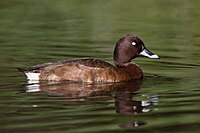 Photograph credit: John HarrisonThe hardhead (Aythya australis) is a species of diving duck found in Australia. Also known as the white-eyed duck, its plumage is chocolate brown in both sexes, but only males have the distinctive white eye. The common name "hardhead" has nothing to do with the density of the bird's skull, instead referring to the difficulty encountered by early taxidermists in processing the head. These female (top) and male (bottom) hardheads were photographed at Hurstville Golf Course in Mortdale, New South Wales.
Photograph credit: John HarrisonThe hardhead (Aythya australis) is a species of diving duck found in Australia. Also known as the white-eyed duck, its plumage is chocolate brown in both sexes, but only males have the distinctive white eye. The common name "hardhead" has nothing to do with the density of the bird's skull, instead referring to the difficulty encountered by early taxidermists in processing the head. These female (top) and male (bottom) hardheads were photographed at Hurstville Golf Course in Mortdale, New South Wales.
-
Photograph credit: John HarrisonThe white-throated kingfisher (Halcyon smyrnensis) is a tree kingfisher, widely distributed in Asia from the Sinai Peninsula east through the Indian subcontinent to the Philippines. Seen here in the Singapore Botanic Gardens, it perches conspicuously on wires or other exposed perches within its territory, and is a frequent sight in southern Asia. This species mainly hunts large crustaceans, insects, earthworms, rodents, snakes, fish and frogs; it bathes in water but rarely drinks.
-
 Photograph credit: John HarrisonThe hardhead (Aythya australis) is a species of diving duck found in Australia. Also known as the white-eyed duck, its plumage is chocolate brown in both sexes, but only males have the distinctive white eye. The common name "hardhead" has nothing to do with the density of the bird's skull, instead referring to the difficulty encountered by early taxidermists in processing the head. These female (top) and male (bottom) hardheads were photographed at Hurstville Golf Course in Mortdale, New South Wales.
Photograph credit: John HarrisonThe hardhead (Aythya australis) is a species of diving duck found in Australia. Also known as the white-eyed duck, its plumage is chocolate brown in both sexes, but only males have the distinctive white eye. The common name "hardhead" has nothing to do with the density of the bird's skull, instead referring to the difficulty encountered by early taxidermists in processing the head. These female (top) and male (bottom) hardheads were photographed at Hurstville Golf Course in Mortdale, New South Wales.
Subpages tests
Subpages + POTD—gallery{{Portal pictures|2012-05-06 |demoroot=Portal:Brazil |subpagemax=3}}{{Portal pictures}}
Parodia tenuicylindrica is a small species of cactus native to the Rio Grande do Sul region of Brazil. It grows 4–8 cm (1.6–3.1 in) in height and 2–3 cm (0.8–1.2 in) in width. It has yellow and red-brown spines, white wool and yellow flowers. It produces yellow-green fruit and black seeds.
Portal:Brazil/Selected picture/1
Chamber of Deputies of Brazil (the lower house). Since the 1960s, the National Congress has its seat in Brasilia. As most of the official buildings in the city, it was designed by Oscar Niemeyer following the style of modern Brazilian architecture.
Portal:Brazil/Selected picture/2
Cyclone Catarina is one of several informal names for a South Atlantic tropical cyclone that hit southeastern Brazil in late March 2004. Although not the first southern Atlantic tropical cyclone, it was the first positively identified cyclone-strength system in the basin.
Portal:Brazil/Selected picture/3
Pipa Beach Credit: UspnPipa Beach is a village and beach in the state of Rio Grande do Norte, Brazil. It is situated in the municipality of Tibau do Sul, about 84 km south of the capital of the state, Natal.Parodia tenuicylindrica is a small species of cactus native to the Rio Grande do Sul region of Brazil. It grows 4–8 cm (1.6–3.1 in) in height and 2–3 cm (0.8–1.2 in) in width. It has yellow and red-brown spines, white wool and yellow flowers. It produces yellow-green fruit and black seeds.
Portal:Brazil/Selected picture/1
Chamber of Deputies of Brazil (the lower house). Since the 1960s, the National Congress has its seat in Brasilia. As most of the official buildings in the city, it was designed by Oscar Niemeyer following the style of modern Brazilian architecture.
Portal:Brazil/Selected picture/2
Cyclone Catarina is one of several informal names for a South Atlantic tropical cyclone that hit southeastern Brazil in late March 2004. Although not the first southern Atlantic tropical cyclone, it was the first positively identified cyclone-strength system in the basin.
Portal:Brazil/Selected picture/3
Pipa Beach Credit: UspnPipa Beach is a village and beach in the state of Rio Grande do Norte, Brazil. It is situated in the municipality of Tibau do Sul, about 84 km south of the capital of the state, Natal.Subpages + POTD—slideshow{{Portal pictures|2012-05-06 |demoroot=Portal:Brazil |function=slideShow |subpagemax=3}}{{Portal pictures}}
-
Chamber of Deputies of Brazil (the lower house). Since the 1960s, the National Congress has its seat in Brasilia. As most of the official buildings in the city, it was designed by Oscar Niemeyer following the style of modern Brazilian architecture.
-
Cyclone Catarina is one of several informal names for a South Atlantic tropical cyclone that hit southeastern Brazil in late March 2004. Although not the first southern Atlantic tropical cyclone, it was the first positively identified cyclone-strength system in the basin.
-
Pipa Beach Credit: UspnPipa Beach is a village and beach in the state of Rio Grande do Norte, Brazil. It is situated in the municipality of Tibau do Sul, about 84 km south of the capital of the state, Natal. -
Parodia tenuicylindrica is a small species of cactus native to the Rio Grande do Sul region of Brazil. It grows 4–8 cm (1.6–3.1 in) in height and 2–3 cm (0.8–1.2 in) in width. It has yellow and red-brown spines, white wool and yellow flowers. It produces yellow-green fruit and black seeds.
-
Parodia tenuicylindrica is a small species of cactus native to the Rio Grande do Sul region of Brazil. It grows 4–8 cm (1.6–3.1 in) in height and 2–3 cm (0.8–1.2 in) in width. It has yellow and red-brown spines, white wool and yellow flowers. It produces yellow-green fruit and black seeds.
-
Pipa Beach Credit: UspnPipa Beach is a village and beach in the state of Rio Grande do Norte, Brazil. It is situated in the municipality of Tibau do Sul, about 84 km south of the capital of the state, Natal. -
Cyclone Catarina is one of several informal names for a South Atlantic tropical cyclone that hit southeastern Brazil in late March 2004. Although not the first southern Atlantic tropical cyclone, it was the first positively identified cyclone-strength system in the basin.
-
Chamber of Deputies of Brazil (the lower house). Since the 1960s, the National Congress has its seat in Brasilia. As most of the official buildings in the city, it was designed by Oscar Niemeyer following the style of modern Brazilian architecture.
-
-

